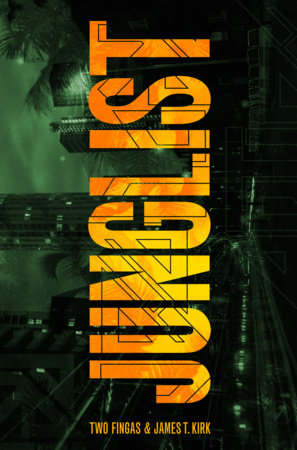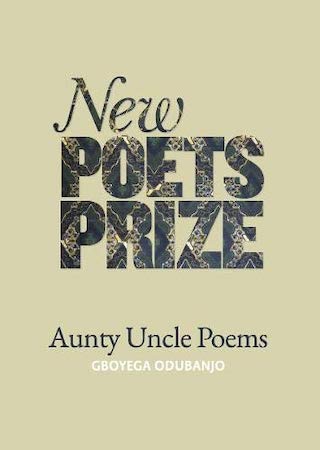If you enjoy reading Electric Literature, join our mailing list! We’ll send you the best of EL each week, and you’ll be the first to know about upcoming submissions periods and virtual events.
It is midday, and table girls are just getting into the flow of their shift as punters come in, loosening their ties. Or it is 4 a.m., and a lock-in is about to go down; the club owner has to do a quick risk assessment of the people in the room before moving onto shadow hours. Elsewhere, a mob boss drinks at a bar while taking an urgent call from his mother as her house is suddenly aflame—the dancers slow down around him, briefly. Another time, a girl is jostled by a drunken clerk type until one of her companions stands and whispers in the drunk’s ear and he leaves within a flash. We know these scenes as they play out in varying shapes in our own experiences. Some of what I have described is directly harvested from The Sopranos, and some from my last time raving.
Something that shines in The Sopranos is the curated insularity of its club scenes. The viewer’s curiosity for the mechanisms around the moving forces of the story is parsed into an internal abstracted site, a club that carries on around the drama. This is something that always drew me in as a writer. With my debut novel Keeping the House, I wanted to show my characters taking a tour through a crowded site like a club and still stand out, the story still draws in towards them.
Orchestrating meaning-making moments to churn away amidst other people’s disconnected euphoria became an exercise to me. One of the earliest scenes in Keeping the House shows a group of underage teens that sneak into a club through the fire exit—it’s one of their final nights out together as the group. At the same time, a traumatic incident is taking place outside, one that will overlap into their lives. We can assemble these alternative and uncomfortable meet-cutes through the way we frame scenes in books.
To me, the literature that I enjoy the most thrums with that energy of having rooms built full of dominos, each micro-movement playing a yet untold role in the motion of the story. Something that binds many of these stories together is the way that they call attention to the hypocrisies in our everyday moments and emphasize the people who are surgically zoomed into those details. That is, indeed, how loaded these sites of tension feel to me. I want to have my antennas out in the chicken shop, as the person in front of me might be having his own main character moment by requesting 15 packets of ketchup. I want to look up from my phone at the security guard in Debenhams who is looking elsewhere as a girl stands audaciously close to his elbow and tucks a silk scarf into her pocket. How do we look up? I think these books do a good job of that.
Love in the Big City by Sang Young Park, translated by Anton Hur
“Jaehee’s fifth or sixth man had dropped out of a technical school where he’d been learning about fixing boilers and was now going from club to nameless club, allegedly a DJ. My eighth or ninth boyfriend had also been a ‘DJ’ in Itaewon. There were so many DJs in Seoul that I wondered if there ought to be some regulating association that handed out licenses in order to ensure quality spins.”
They say with DJs that you have the technical decks person and you have the vibesman. I think that Sang Young Park’s protagonist in Love in the Big City is the ultimate vibesman. We see him dumped because his lover couldn’t bring himself to love him whenever he’d had a drink (too much singing that would result in eventual crying) and start sharing encyclopedic takedowns of Seoul nightlife. We know the vibes. In an electric translation by Anton Hur, we feel the playfulness of the protagonist, with his roster of lovers from DJs to Tinder finds—while at the same time deepening our engagement with the sprawl of responsibilities that wrap around you while you are attempting to have a good time.
Junglist by Two Fingas and James T. Kirk
“right now we have enough energy to create our own path before we become locked to the ones already made. Flashing my lighter, I look around, move across the crowded space, peering into faces.”
An iconic book, in a brilliant reprint from Repeater Books that includes a new introduction by Sukhdev Sandhu. Junglist in a lucid, sensitive, rawthentic stream-of-consciousness from four young Black men takes us right into the Jungle music scene in London during the 1990s. It is hyperfocused, zooming us into the different peripheral camera shots of the intimacies of a point in time. Clubbers who keep their gear in their socks, kitchens with empty hunted cupboards and lover’s poetics. The book slides between voices and form in a celebration of Black British sound system culture and London’s different imaginations.
Viral by Matthew Sperling
“People in their twenties, all tattoos and shiny teeth. Behind the bar stood a small zoo of taxidermy creatures: a huge fish, a baby boar, a yellow duckling under a bell jar. All across the ceiling, white satellite dishes had been converted into lamp fixtures.”
Sperling lingers on the absurd details that make up so many of the markers of a society questing towards perfection. In a book that looks at the economic and technological structures around start-ups, Viral calls us to look at uncomfortable characters and uncomfortable settings, and does so in a toying and knowing manner. The nightspot that is described in this extract could be any site of gentrification, springboarded out of nowhere with an armory of taxidermy mutations and upcycled toilet seats. I eyed up my reupholstered armchair with more suspicion after reading. Mostly though, throughout the tensing muscle scape of start-up culture, Sperling harvests from the all too often maniacal energy of the tech maverick.
Zoo City by Lauren Beukes
“A municipal street-cleaning truck chugs up ahead, blasting the tarmac with a sheet of water to wash away the transgressions of the night. One of the transgressions in question dances back to avoid being sprayed.”
In this noir urban fantasy and science fiction novel from Lauren Beukes, we meet Zinzi, who has a Sloth on her back and uncomfortable work to fulfill, by way of finding missing people. In a pseudo-fantastical Johannesburg a fair few years ahead, we are introduced to a city that feels like a trap-wire, the topography of which is built around fluorescent lights and dingy apartments that commuters rush past to hail cabs. Beukes writes characters who are fluid and complex, the heroics of their actions often murky and dependent on the information that we are fed. It’s a fast-paced and atmospheric read, one that makes you want to slow down to linger within one of the vignettes, perhaps a courtyard full of “crazily beautiful boys and girls.. lolling, smoking and chatting.”
Permafrost by Eva Baltasar, translated by Julia Sanches
“If I crane my neck a little, I can see the beltway from the hospital room window. At night the cars look like comets driven by inscrutable mood swings. They appear this way, I think, because hospitals generate new levels of emotion that are more compassionate and nuanced.”
Eva Baltasar debuted with this novel, she is an acclaimed Catalan poet and it shows. Her style is visceral and brings you back to the body of both people and places, enhanced with a rich translation by Julia Sanches. With a sharpness that comes close to an alarm, this book’s lesbian narrator is self-aware, calling out the ways that people attempt to box her. She flits between lives, from Barcelona to Brussels to au pairing in Scotland. Readers are brought into a navigation of the infrastructures that make a space, to such an extent that we soon attribute her hatred of the color green to the green of Scotland itself.
All too often with queer narratives, they are rooted in a melancholia that feels angled towards the experience of coming out itself, whereas Permafrost’s unique melancholy comes from the protagonist’s gyrating in and out of the lives set out for her. The campness too, of the way that Baltasar’s narrator deconstructs the things she sees around her, feels like the camera lens of a Sopranos club scene.
The Young Team by Graeme Armstrong
“That initial mushroom-cloud bang yi feel as the MDMA takes hold n taes yi higher, yir breathin deepens n it’s got yi. The lightness, manoeuvrability, the anticipation, the power ae suggestion.”
I had the pleasure of listening to Graeme read from the above section in Glasgow recently. The shamanic rhythm of his protagonist Azzy taking in life around him reels by, both to read and to listen to. Armstrong has woven a tapestry that feels years in the making, like photojournalism in its level of researched detail. Armstrong maps the urbanscape of the housing schemes of Lanarkshire and the experiences of Azzy, who joins the Young Team [YTP] in 2004 and quests towards another life in 2012. Tensions manifest as quickly as a Buckfast gets slugged down, and it is this careful balance of tension that keeps your eye right on the window that is yet to be smashed.
Aunty Uncle Poems by Gboyega Odubanjo
“knows this look to mean if she can distract Uncle with what he really wants then Dad can get what he wants and he can give Aunty what it is she really wants, which is –”
That snippet is taken from the poem “Diplomacy” in the Aunty Uncle Poems pamphlet. I think that the project is a uniquely stuffed elevator of family (the blurb promises family “by blood or by choice”)—and as that image might suggest, the air gets too hot sometimes and disruptions pop. In other spots, the cast of aunties and uncles orbit each other, providing solutions in the telekinetic ways that tight-knit circles often do. The solutions are necessitated by a dance between drama sounding off, and the quest towards the alternative euphoria of hearing your name on radio shoutouts and belonging found in pubs, and legs of lambs left behind in pubs.








